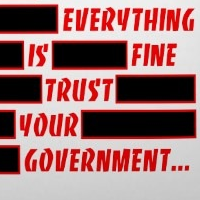Obama Administration Finally Releases Legal Justification for Massive Collection of Phone Records

The Obama administration on Friday released a “white paper” detailing its legal rationale for the massive National Security Agency (NSA) metadata collection program, but questionable statements of fact and law have made the paper a popular target of criticism.
Perhaps most bizarrely, the paper insists that “the Government cannot, through this program, listen to or record any telephone conversations,” despite the recent surfacing of NSA documents leaked by whistleblower Edward Snowden—reported last week here at AllGov—that conclusively demonstrate how easy it is for the government to “listen in or record,” conversations.
The basic thrust of Obama’s position is that the snooping is constitutional because “Supreme Court precedent” says that callers “lack any reasonable expectation of privacy under the Fourth Amendment in the metadata records generated by their telephone calls.” None of the cases cited, however, dealt with anything like the NSA’s indiscriminate bulk collection of records.
The paper says the program is legal because the metadata is “relevant” to counter-terrorism under Section 215 of the Patriot Act, which permits the government to collect “any tangible things” when there are “reasonable grounds to believe that the tangible things sought are relevant to an authorized investigation” to get foreign intelligence information or to protect against international terrorism.
“Relevance,” says the paper, is “a broad standard that permits discovery of large volumes of data in circumstances where doing so is necessary to identify much smaller amounts of information within that data that directly bears on the matter being investigated.”
These definitions defy “any previous interpretation of the law,” said Anthony D. Romero, executive director of the American Civil Liberties Union. “The way the government is interpreting relevance, anything and everything they say is relevant becomes relevant. The release of this document is too little, too late in light of a massive public outcry over a secret surveillance program that has affected millions of innocent Americans.”
The reception was little better on Capitol Hill, with Rep. Rush D. Holt (D-New Jersey) calling on Obama to reverse course: “The president must acknowledge what a clear majority of Americans know: Our government has violated the law by collecting the communications of millions of innocent U.S. citizens.”
Elizabeth Goitein, co-director of the Brennan Center for Justice’s Liberty and National Security Program, argued the administration failed to justify the dragnet collection. “I think a lot of Americans would say if the government isn’t investigating a specific crime, then it has no business collecting every American’s records.”
-Matt Bewig
To Learn More:
Obama Administration Asserts Broad Surveillance Powers (by Ellen Nakashima and Robert Barnes, Washington Post)
Bulk Collection of Telephone Metadata under Section 215 of the USA Patriot Act (Administration White Paper) (pdf)
How Extensive is NSA Phone and Internet Surveillance…The Latest Revelations (by Matt Bewig, AllGov)
Left and Right Sue Obama Administration over Indiscriminate Phone Spying (by Matt Bewig, AllGov)
- Top Stories
- Unusual News
- Where is the Money Going?
- Controversies
- U.S. and the World
- Appointments and Resignations
- Latest News
- Trump Renames National Football League National Trump League
- Trump to Stop Deportations If…
- Trump Denounces World Series
- What If China Invaded the United States?
- Donald Trump Has a Mental Health Problem and It Has a Name






Comments